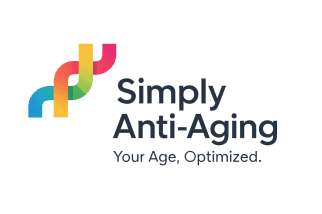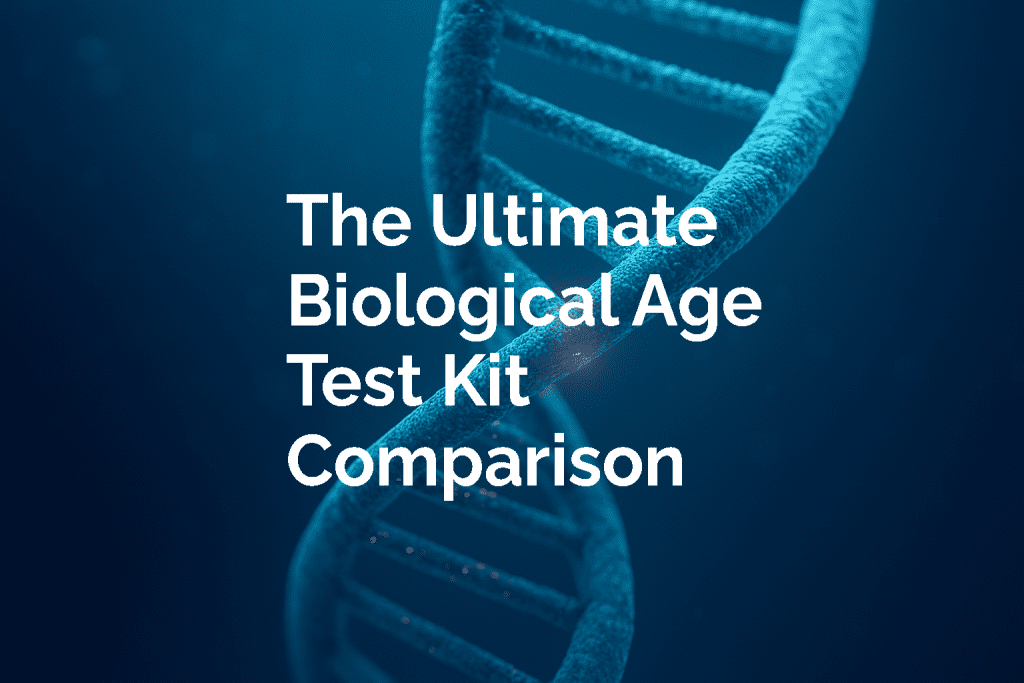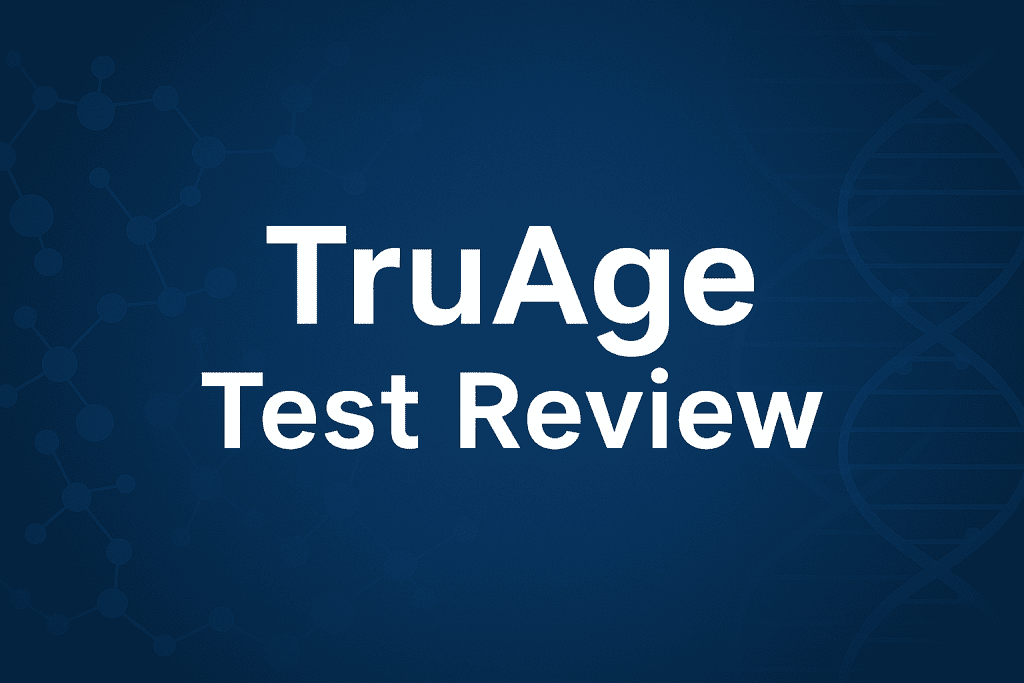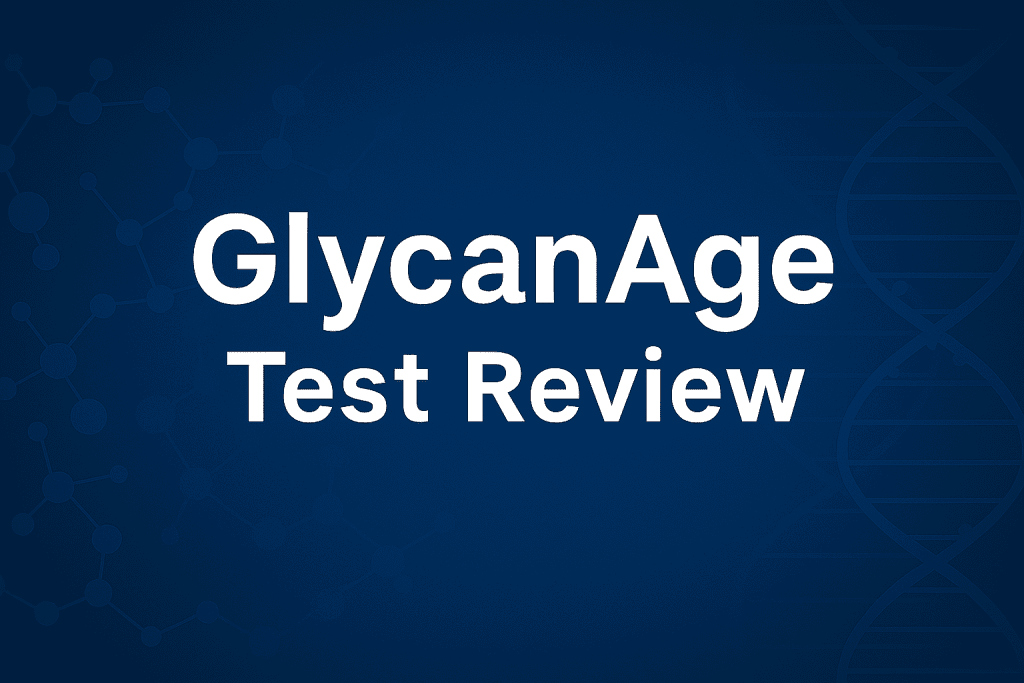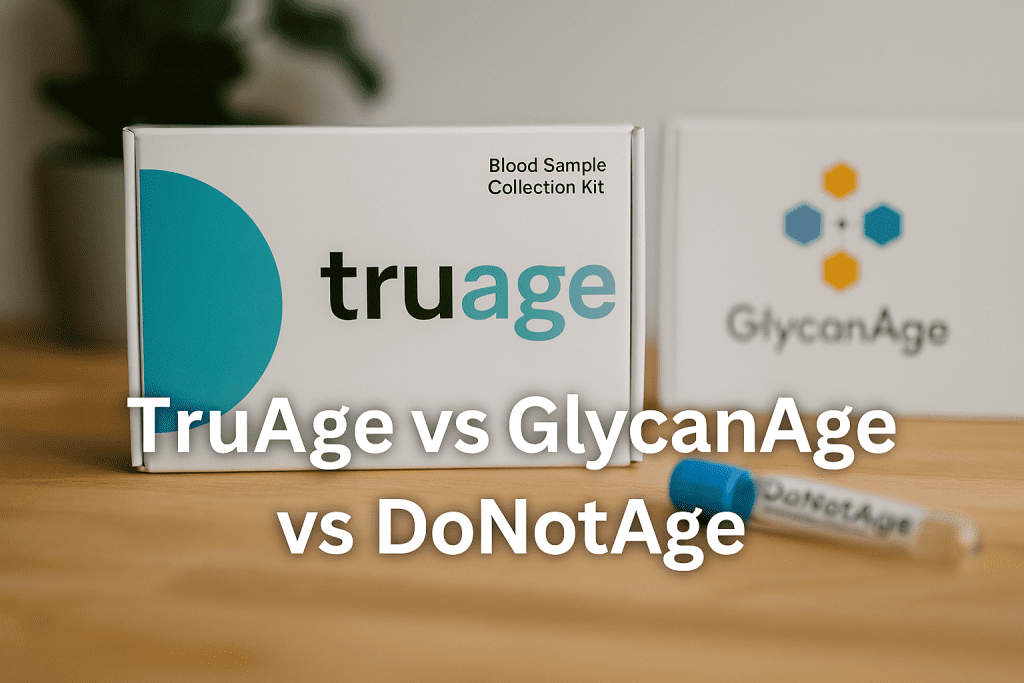
You’ve probably heard it by now: your biological age matters more than the number of candles on your last birthday cake. Knowing how old your body really is isn’t just interesting: it’s powerful data you can use to improve your health. Three tests lead the space in 2025: TruAge vs GlycanAge vs DoNotAge. In this guide, we compare them head-to-head so you can choose the best biological age test for your goals.
What do TruAge, GlycanAge, and DoNotAge age tests actually measure?
TruAge uses blood-based DNA methylation to assess aging speed and organ health. GlycanAge analyzes immune and inflammation aging through IgG glycans. DoNotAge offers a saliva test with broader wellness markers like memory and vision.
TruAge (TruDiagnostic)
TruAge measures biological age using DNA methylation. Developed alongside top research institutions like Harvard, Yale, Duke, and Columbia, it leverages industry-leading algorithms: OMICmAge, DunedinPACE, and SYMPHONYAge.
These give insights not just into your biological age but also how fast you’re aging, organ-specific aging, and even telomere length.
- Sample type: Blood (finger-prick)
- Turnaround: 3–4 weeks
- Accuracy: Validated in multiple peer-reviewed studies; predictive accuracy around 98–99%
GlycanAge
GlycanAge approaches biological age differently, it measures glycans attached to immunoglobulin G (IgG), reflecting your immune health and inflammation levels. Glycans reveal how lifestyle and inflammation impact your aging process, making it sensitive to lifestyle shifts.
- Sample type: Blood (finger-prick)
- Turnaround: 3–5 weeks
- Accuracy: Validated by decades of glycoscience research, widely used in clinical studies (Harvard)
DoNotAge
DoNotAge relies on DNA methylation through saliva samples and adds metrics like inflammation, memory, hearing, and eye health. It’s designed as a broader wellness test rather than purely a biological age clock.
- Sample type: Saliva
- Turnaround: Up to 12 weeks
- Accuracy: Proprietary machine-learning algorithms; less academically validated compared to TruAge or GlycanAge, but provides a holistic wellness snapshot (NIH | DNA methylation)
Head-to-Head Comparison: TruAge vs GlycanAge vs DoNotAge
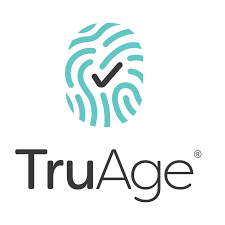 TruAge
Best Overall
TruAge
Best Overall | 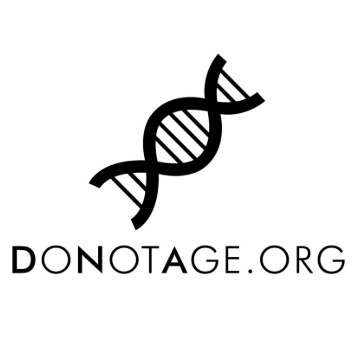 DoNotAge
Best Value
DoNotAge
Best Value | 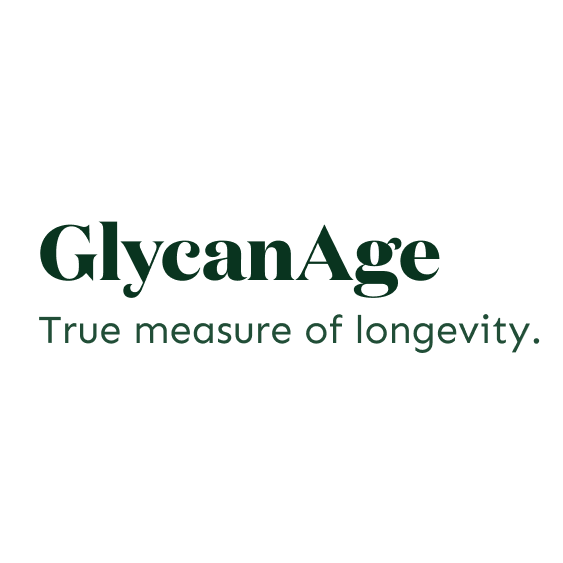 GlycanAge
Immune Focus
GlycanAge
Immune Focus | |
|---|---|---|---|
| Measurement Method | DNA Methylation (Blood) | DNA Methylation (Saliva) | IgG Glycan Profile (Blood) |
| Accuracy & Validation | Exceptional precision (98–99%) Lab-grade | Consistent results (proprietary algorithm) | Peer-reviewed clinical validation |
| Test Duration | 3–4 Weeks | Up to 12 Weeks | 3–5 Weeks |
| Extra Insights | Organ-by-organ trends, pace of aging, telomere dynamics | Cognition, hearing, vision, cardio-metabolic & inflammation markers | Immune balance, low-grade inflammation, lifestyle responsiveness |
| Cost | $299 | $275 | ~$299 |
|
Order TruAge 🔒
Trusted lab • Top precision
12% Off TruINSIDER12 |
Order DoNotAge 🔒
Great price • Broad insights
10% Off DAILYBIOHACKING |
Order GlycanAge 🔒
Immune aging insights
10% Off DAILYBIOHACKING |

🥇 TruAge
Best Overall🔬 Method: DNA methylation (blood) for a high-resolution view of biological age.
📊 What you learn: Which organs are aging fastest, your personal pace of aging, and telomere dynamics, so you can focus your routine where it matters.
🎯 Why people choose it: Actionable, lab-grade precision trusted by health enthusiasts and coaches.
💵 Price: $299

🥈 DoNotAge
Best Value🧬 Method: DNA methylation (saliva) for a convenient at-home experience.
📈 What you learn: Memory, hearing, vision, cardio-metabolic and inflammation indicators: useful signals to guide day-to-day habits.
💡 Why people choose it: Friendly price point with broad health insights; simple, quick collection.
💵 Price: $275

🥉 GlycanAge
Immune Focus🧪 Method: IgG glycan profiling (blood) to reflect immune system balance.
🛡️ What you learn: Low-grade inflammation and immune aging trends, great for tracking lifestyle changes like training, sleep, and nutrition.
✨ Why people choose it: Clear immune-focused score with peer-reviewed validation; perfect for optimizing recovery and resilience.
💵 Price: ~ $299
Some links may be affiliate. We may receive a small fee if you purchase at no extra cost for you.
TruAge, GlycanAge, and DoNotAge Discount Codes
🎁 Enjoy Exclusive Discounts for Our Readers
GlycanAge | 10% Off
DoNotAge | 10% Off
TruAge | 12% Off
Which biological age test is best for you?
Choose TruAge for detailed metrics, GlycanAge for immune tracking, or DoNotAge for a broad health overview.
- TruAge: If you’re a biohacker or longevity enthusiast looking for precise organ-level insights and comprehensive aging metrics, TruAge is your gold standard (Harvard on biological clocks).
- GlycanAge: Ideal if you’re particularly interested in inflammation, immune system aging, or hormonal impacts like menopause or stress.
- DoNotAge: Good if you want a broader wellness snapshot beyond just biological age, measuring additional lifestyle markers like memory and sensory aging.
What can you do with your biological age results?
Use them to guide targeted lifestyle changes, whether it’s cardio for heart health, anti-inflammatory diets, or memory-boosting habits, based on what your test reveals.
One of the biggest mistakes people make is getting their biological age score and then doing nothing with it. Here’s exactly how you can apply these insights into everyday life:
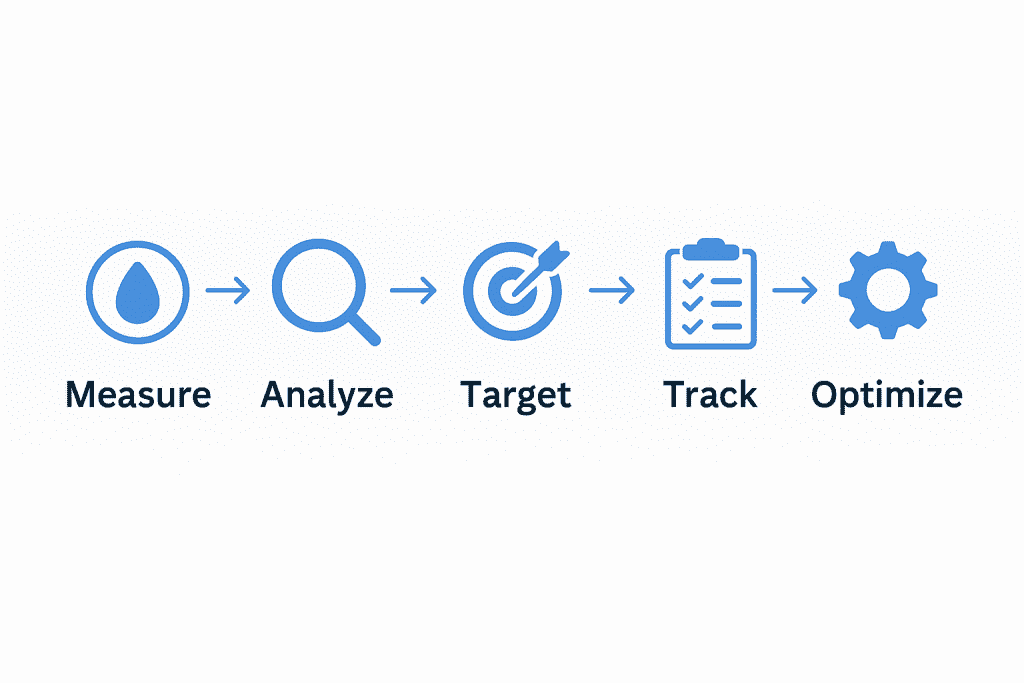
TruAge: Precision Lifestyle Changes
TruAge delivers a detailed breakdown of how each organ system is aging. For example, if your cardiovascular system is flagged as aging faster than the rest of your body, you can prioritize targeted lifestyle shifts like cardio training, heart-healthy foods, and stress management. Harvard researchers confirm that lifestyle interventions can measurably reverse signs of biological aging (Harvard Study on Aging Reversal, 2023).
If your immune or inflammation scores are high, you might benefit from anti-inflammatory supplements such as omega-3 or curcumin, alongside better sleep and fasting protocols. The goal is simple: incremental improvements tailored exactly to your biology.
GlycanAge: Adjust Your Habits, Track Progress
GlycanAge focuses on inflammation and immune system aging. If your results reveal chronic stress is aging you faster, that’s a call to action. Science links stress to immune decline (NIH Study on Stress and Immune Aging, 2022). A smart response could be daily meditation, yoga, or time in nature.
GlycanAge is highly sensitive to lifestyle changes. Retest in 6 months and see whether your stress-management or dietary shifts lowered your biological immune age. This makes it ideal if you’re experimenting with new habits and want measurable proof they work.
DoNotAge: Wellness Snapshot for Broad Changes
DoNotAge offers a broad wellness snapshot, including memory, vision, hearing, and inflammation scores. If your “memory age” comes back older than expected, that’s not a diagnosis, it’s a signal to act. Lifestyle has a huge influence on cognitive aging (NIH on Cognitive Aging, 2024).
Simple steps include adding brain-boosting foods like blueberries and walnuts, practicing memory exercises, and following an anti-inflammatory diet such as Mediterranean style. Annual re-testing helps you track if your memory and inflammation scores are improving: perfect for those who prefer broad, consistent health insights rather than deep organ-level detail.
Why Choosing the Right Epigenetic Test Matters
Consider two scenarios that show clearly how picking the right test can drastically change your outcome:
Scenario A: John (age 45, fitness-focused)
John chose TruAge because he’s been optimizing fitness and health. His TruAge test showed his biological age as slightly younger, but his cardiovascular age lagged behind due to genetic predispositions. This data prompted John to fine-tune his fitness regime, incorporating more cardio-intensive workouts and nutritional tweaks focused on heart health. After a year, his follow-up showed marked improvements in his cardiovascular scores, proving the targeted approach genuinely worked.
Scenario B: Sarah (age 53, high-stress job)
Sarah opted for GlycanAge, suspecting stress was prematurely aging her. Sure enough, her biological age came back significantly older, flagged by elevated inflammatory markers. Sarah used these results as motivation to adjust her lifestyle radically. She started daily mindfulness sessions and introduced anti-inflammatory foods like turmeric and olive oil. Retesting nine months later, her GlycanAge scores dropped by 5 years biologically, a tangible result directly connected to her actionable lifestyle changes.
These real-life cases underline why your choice between TruAge, GlycanAge, and DoNotAge matters. Your biological age isn’t just a number, it’s a roadmap for real, meaningful change.
Created by SimplyAntiAging.com’s Editorial Research Team
Reviewed and updated for accuracy in December 2025.
